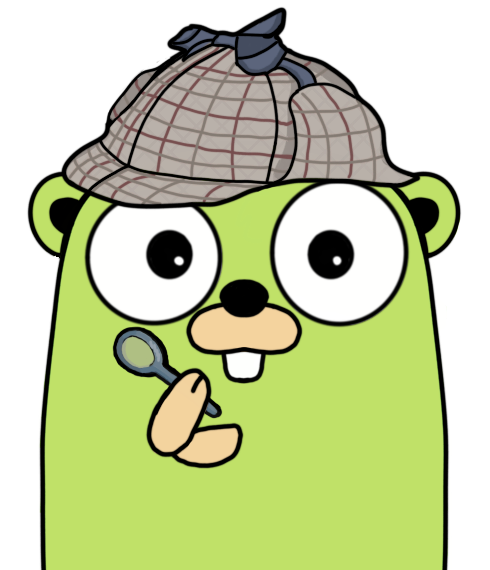Awesome
SuperMonkey

This lib is inspired by https://github.com/bouk/monkey, and uses some of the code
Introduction
Patch all functions without limits, including which are unexported
Warning : please add -l to your gcflags or add //go:noinline to func which you want to patch.
when running in tests
you should run this lib under a go mod project and provide the full project path
Warning : use go test -ldflags="-s=false" -gcflags="-l" to enable symbol table and disable inline.
2023/04/23 14:01:05 reading /root/tmp/go-build541175936/b001/exe/a: no symbol section
2023/04/23 14:01:05 reading /root/tmp/go-build541175936/b001/exe/a: no symbols
if you has this problem, just set -ldflags="-s=false"
when running not in tests
patch private function
normal
package main
import (
"fmt"
sm "github.com/cch123/supermonkey"
)
func main() {
fmt.Println("original function output:")
heyHey()
patchGuard := sm.Patch(heyHey, func() {
fmt.Println("please be polite")
})
fmt.Println("after patch, function output:")
heyHey()
patchGuard.Unpatch()
fmt.Println("unpatch, then output:")
heyHey()
}
//go:noinline
func heyHey() {
fmt.Println("fake")
}
go run -gcflags="-l" yourfile.go
full symbol name
package main
import (
"fmt"
sm "github.com/cch123/supermonkey"
)
func main() {
fmt.Println("original function output:")
heyHeyHey()
patchGuard := sm.PatchByFullSymbolName("main.heyHeyHey", func() {
fmt.Println("please be polite")
})
fmt.Println("after patch, function output:")
heyHeyHey()
patchGuard.Unpatch()
fmt.Println("unpatch, then output:")
heyHeyHey()
}
//go:noinline
func heyHeyHey() {
fmt.Println("fake")
}
go run -gcflags="-l" yourfile.go
patch private instance method
normal
package main
import (
"fmt"
sm "github.com/cch123/supermonkey"
)
type person struct{ name string }
//go:noinline
func (p *person) speak() {
fmt.Println("my name is ", p.name)
}
func main() {
var p = person{"Lance"}
fmt.Println("original function output:")
p.speak()
patchGuard := sm.Patch((*person).speak, func(*person) {
fmt.Println("we are all the same")
})
fmt.Println("after patch, function output:")
p.speak()
patchGuard.Unpatch()
fmt.Println("unpatch, then output:")
p.speak()
}
go run -gcflags="-l" yourfile.go
full symbol name
package main
import (
"fmt"
"unsafe"
sm "github.com/cch123/supermonkey"
)
type person struct{ name string }
//go:noinline
func (p *person) speak() {
fmt.Println("my name is ", p.name)
}
func main() {
var p = person{"Linda"}
fmt.Println("original function output:")
p.speak()
patchGuard := sm.PatchByFullSymbolName("main.(*person).speak", func(ptr uintptr) {
p = (*person)(unsafe.Pointer(ptr))
fmt.Println(p.name, ", we are all the same")
})
fmt.Println("after patch, function output:")
p.speak()
patchGuard.Unpatch()
fmt.Println("unpatch, then output:")
p.speak()
}
package main
import (
"context"
"fmt"
sm "github.com/cch123/supermonkey"
)
type Bar struct {
Name string
}
type Foo struct{}
func (*Foo) MyFunc(ctx context.Context) (*Bar, error) {
return &Bar{"Bar"}, nil
}
func main() {
f := &Foo{}
fmt.Println("original function output:")
fmt.Println(f.MyFunc(nil))
//patchGuard := sm.PatchByFullSymbolName("main.(*Foo).MyFunc", func(_ *Foo, ctx context.Context) (*Bar, error) {
patchGuard := sm.PatchByFullSymbolName("main.(*Foo).MyFunc", func(_ uintptr, ctx context.Context) (*Bar, error) {
return &Bar{"Not bar"}, nil
})
fmt.Println("after patch, function output:")
fmt.Println(f.MyFunc(nil))
patchGuard.Unpatch()
fmt.Println("unpatch, then output:")
fmt.Println(f.MyFunc(nil))
}
go run -gcflags="-l" yourfile.go